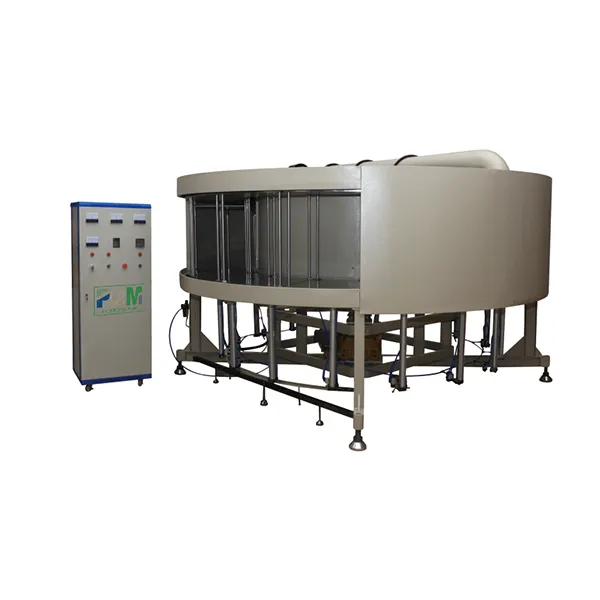Desemba . 29, 2024 23:03 Back to list
Cabin Air Filter Manufacturing Line Cost Estimates and Production Insights
The Importance of Cabin Air Filter Production Lines
In today's automotive industry, the cabin air filter plays a crucial role in ensuring the health and comfort of passengers. As more consumers become aware of air quality and the potential hazards of outdoor pollutants, manufacturers must prioritize the production of high-quality cabin air filters. This has led to a growing demand for efficient and advanced production lines dedicated to cabin air filters. In this article, we will explore the significance of cabin air filter production lines, the technology involved, and the future of this essential industry.
The Significance of Cabin Air Filters
Cabin air filters are designed to trap harmful pollutants such as dust, pollen, smoke, and other particulate matter before they enter the vehicle's interior. This capability is vital, especially in urban areas where air pollution levels are high. According to the World Health Organization, poor air quality can lead to various health issues, including respiratory diseases and allergies. Therefore, ensuring that vehicles are equipped with effective cabin air filters is not just a matter of comfort but a critical health issue for drivers and passengers alike.
The Production Process
The production of cabin air filters involves several key steps. First, raw materials such as filter media, adhesives, and frames need to be sourced. The most commonly used materials are synthetic fibers, cellulose, and activated carbon, each serving specific filtration purposes. Once the materials are acquired, they undergo quality checks to ensure they meet industry standards.
The next stage involves the assembly of the filters, which can vary based on the manufacturer’s design and specifications. Automated production lines are rapidly becoming the norm, utilizing advanced robotics and machine automation to enhance efficiency. These systems can deliver consistent quality and reduce production costs while navigating the complexities of modern manufacturing constraints.
Quality assurance is a critical part of the production line. Filters must undergo various tests, such as airflow resistance tests and particle capture efficiency assessments, to ensure they meet safety and efficiency standards. Proper packaging and storage systems also play a role in maintaining the integrity of the filters until they are ready for distribution.
cabin air filter production line quotes

Technological Advancements
Technology is revolutionizing cabin air filter production lines. The introduction of Industry 4.0, which encompasses IoT (Internet of Things), AI (Artificial Intelligence), and big data analytics, is streamlining operations in factories.
With IoT sensors, manufacturers can monitor equipment health in real-time, predicting maintenance needs before costly breakdowns occur. AI-driven algorithms can optimize workflow, ensuring that the production line operates at peak efficiency. Moreover, big data analytics allows manufacturers to forecast demand accurately, helping them adjust their production schedules and inventory levels.
These advancements not only improve the efficiency of the production process but also enhance product quality. Smart systems can detect defects in filters, ensuring that only the highest quality products reach consumers. This dedication to quality has become a competitive advantage in the market, as manufacturers strive to exceed the expectations of discerning customers.
The Future of Cabin Air Filter Production
As awareness of air quality continues to grow, the demand for cabin air filters is expected to rise significantly. Manufacturers will need to adapt their production lines to meet this increasing demand while maintaining high standards of quality and efficiency. Sustainability is likely to become a central focus, with rising interest in eco-friendly materials and production methods.
Moreover, innovations in filter technology, such as electrostatic filters and those infused with antimicrobial agents, will create new opportunities for manufacturers to differentiate their products. This focus on innovation will not only enhance air quality within vehicles but also contribute to a healthier, more sustainable future.
In conclusion, cabin air filter production lines are vital to ensuring the quality of air we breathe inside our vehicles. With advancements in technology and a commitment to maintaining high standards, manufacturers are positioned to meet the needs of an evolving market. The potential for growth in this sector is immense, as consumers increasingly prioritize their health and well-being while on the road. The future of cabin air filters looks promising, driven by innovation, efficiency, and a focus on quality.
-
Active Carbon Air Filter for Air Purifier: Odor & VOC Control
NewsAug.25,2025
-
Premium Active Carbon Air Filter for Purifiers | Odor & VOC Removal
NewsAug.24,2025
-
Premium Active Carbon Air Filter for Air Purifier | Odor & VOC Removal
NewsAug.23,2025
-
Active Carbon Air Filter for Air Purifier - Superior Odor Removal
NewsAug.22,2025
-
Premium Active Carbon Air Filter for Air Purifiers - Odor Removal
NewsAug.21,2025
-
Premium Acrylic-Resin Air Filter Paper in Roll | High Efficiency
NewsAug.19,2025
